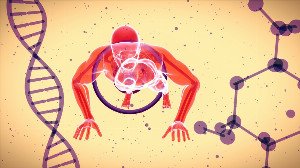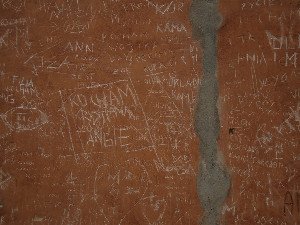Zekai Ayık, Muhammet Davut Gül
Teacher Support Adaptivity in Physics Classroom for Gifted Students
Introduction
Teacher support adaptivity in physics classroom for gifted students. Explore teacher support adaptivity in physics for gifted students. Study reveals teachers lack strategies to meet diverse needs, impacting gifted students more. Recommends training.
Abstract
Gifted students have varying learning characteristics and learning needs. In this respect, adapted support to their skills and learning characteristics during academic activities plays a key role in engaging in learning activities and achieving learning goals. Accordingly, this study focuses on teachers' support of adaptivity competencies during microteaching from the perspective of both gifted and nongifted students. To this end, a descriptive comparative method was adopted, and gifted (n=124) and non-gifted (n=205) students joined the study. An adapted version of the Questionnaire on Teachers’ Support Adaptivity was employed for collecting data. Data were quantitatively analysed including MANOVA and ANOVA. The results revealed that both groups perceived the support they received from teachers as slightly above and below average, meaning that teachers were not competent. In deep analysis, results indicated a significant difference between the two groups, but no difference between girls and boys. That is, gifted students are more disadvantaged than nongifted students since their teachers lack strategies in adapting their support to meet the different academic needs of their students. This study recommends that teachers need pre-service or in-service training to offer quality and appropriate support for gifted students, which is crucial in achieving learning goals.
Review
The study "Teacher Support Adaptivity in Physics Classroom for Gifted Students" addresses a highly pertinent issue concerning the unique educational needs of gifted students and the critical role of adaptive teacher support. The research employs a descriptive comparative method, engaging a substantial sample size of both gifted (n=124) and non-gifted (n=205) students, which lends a degree of statistical power to its quantitative analysis, including MANOVA and ANOVA. The focus on students' perceptions of teacher adaptivity is a valuable perspective, highlighting the impact of teaching practices on learners and the potential for differential experiences based on learning characteristics. While the study offers relevant findings, several aspects warrant closer scrutiny. The abstract states that both groups perceived support as "slightly above and below average," which is somewhat ambiguous and could be interpreted as a general lack of strong competence rather than distinct perceptions for each group. More critically, the data collection occurring "during microteaching" from the students' perspective raises concerns about ecological validity. Microteaching, a simulated environment, may not fully capture the complexities and sustained adaptivity required in a real-world classroom setting, potentially limiting the direct generalizability of the findings to everyday teaching practices. Furthermore, details regarding the "adapted version of the Questionnaire on Teachers’ Support Adaptivity," such as its validation and specific adaptations for this context, are notably absent, making it difficult to assess the robustness of the measurement instrument. Despite these limitations, the study's conclusion that "gifted students are more disadvantaged than nongifted students" due to teachers' lack of adaptive strategies presents a compelling call to action. The recommendation for pre-service or in-service training for teachers is well-justified by the findings, underscoring a critical need for professional development in catering to diverse learning needs, particularly for gifted students. Future research could enhance this understanding by exploring *specific* adaptive strategies that teachers find challenging to implement, delving into the underlying reasons for this difficulty (e.g., lack of resources, knowledge, or time), and investigating teacher adaptivity in authentic, sustained classroom environments. Incorporating qualitative methodologies could also provide richer insights into the nuances of student perceptions and teacher-student interactions.
Full Text
You need to be logged in to view the full text and Download file of this article - Teacher Support Adaptivity in Physics Classroom for Gifted Students from Jurnal Pendidikan Fisika Indonesia .
Login to View Full Text And DownloadComments
You need to be logged in to post a comment.
Top Blogs by Rating
Your Digital Shadow: What Stat...
By Sciaria
Life's Grand Algorithm: Is Bio...
By Sciaria
Is Electro Music the New Class...
By Sciaria
Favorite Blog
Beyond Back Pain: Is Your Ergo...
By Sciaria
Mycorrhizal Networks: Unearthi...
By Sciaria
Whispers from the Walls: Unloc...
By Sciaria





